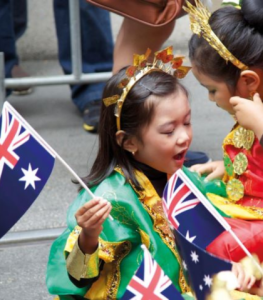Australian media fuelling hostility towards Chinese migrants – study finds
Chinese migrants in Australia think the local media has fuelled suspicious or unfriendly attitudes towards them, a new study says.
The research, carried out by the University of Technology Sydney, explores the hopes and fears of members of Chinese Australian communities.
Asked about the effect of Australian media reports about “Chinese influence”, 70 per cent of survey participants said such stories made the Australian public “more unfriendly or suspicious towards Chinese-Australian communities”.
However, survey participants were divided about whether the Australian English-language media trust Chinese Australians.
 Fifty-one per cent of those who took part in the January survey said the media was either “relatively distrustful” or “completely distrustful”.
Fifty-one per cent of those who took part in the January survey said the media was either “relatively distrustful” or “completely distrustful”.
But just over 40 per cent of respondents had a more positive view about the media level of trust in their communities.
One respondent told the researchers: “Phrases like ‘Chinese spy’ or ‘Chinese threat’ used in the media can make others and society treat us differently, even trigger racism … It can affect everyone in the Chinese community.”
The report said that researchers had found attempts by Australian news outlets and politicians to differentiate the Communist party of China from Chinese Australian communities.
But 59 per cent of survey respondents said they were still worried despite this distinction because excessive negative reporting would fuel suspicion.
UTS researcher Professor Wanning Sun said the focus on geopolitical tensions had “posed serious challenges for PRC migrants in their efforts to be accepted into Australian society, and to express a dual identity as Chinese-Australians”.
“Interviewees emphasise that while they do not have a problem with ‘negative’ news about the PRC, they frequently perceive a particular news-making agenda in Australian English-language media that frames the PRC and Chinese-Australians as hostile entities,” Prof Sun said.
An overwhelming majority of respondents said they were either “extremely concerned” (55 per cent) or “quite concerned” (36 per cent) when asked: ‘How concerned are you about what might happen to you if Australia went to war with China?’
The survey also tested feelings of inclusion by asking participants: “As a first-generation migrant, do you think the mainstream Australian community considers you to be an equal member of that community?”
Despite broader concerns about media coverage, the results showed 17 per cent of respondents answered that they were “always” viewed as equal members of the community, 36 per cent believed that was the case “often”, and 31 per cent replied “sometimes”. On the other hand, 12 per cent responded “rarely” and 5 per cent “very rarely”.












